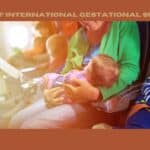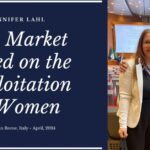I’m writing with good news and bad news. First, the good news: we have been surveying audiences who have watched Eggsploitation for several years now. The data show that overwhelmingly, before watching Eggsploitation, people are largely favorable to the practice although unfamiliar with the process of egg donation.
But after watching Eggsploitation, people feel better informed and are overwhelmingly against the practice. The good news is that we are filling an educational knowledge gap AND having a positive influence in attitudes against egg donation because of the potential harm to healthy young women.
Now the bad news: we recently conducted polling on U.S. attitudes toward surrogacy. That polling data shows that in the U.S., people are overwhelming in favor of surrogacy. It doesn’t matter if they are young or old, if they identify as religious or secular, what their ethnic background is or their political persuasions. People of all backgrounds overwhelmingly think surrogacy is a wonderful way to help people have babies. We have a clear knowledge deficit.
To help fill this knowledge deficit, we are part of an international campaign titled “Stop Surrogacy Now.” For months we have been working hard behind the scenes with many others from around the world. We gathered major signatures of leading international academics, public health advocates, politicians, and feminists to the campaign statement. The StopSurrogacyNow website is launched, and it is full of news stories and resources on surrogacy from around the world.
We have a big hole to dig ourselves out of as we sway public opinion away from this practice. But we’ve been here before and have had much success educating and moving public opinion. For example, we are seeing practices around human eggs shift away from using donor eggs toward enticing women to freeze and store their own eggs. While this change brings a new set of health risks and false promises, it does move away from the anonymous donor model.
The influence of our films and educational efforts have led to us securing back-to-back vetoes in 2013 and 2014 from Louisiana Governor Jindal to prevent surrogacy in that state, securing a 2013 veto in California from Governor Brown to prohibit paying women for their eggs for scientific research, a bipartisan effort to convince New Jersey Governor Christie to veto surrogacy legislation in his state in 2012, and stopping surrogacy legislation in Minnesota in 2013 and 2014. We have the ability to secure future victories, but we need resources. We need your financial support.
The Stop Surrogacy Now campaign is a heavy lift against a powerful and wealthy lobby that exploits both women and children. We have already come under vicious attack on social media. We need your help. Our staff is stretched so very thin. We need to hire public relations and social media support. We need more administrative support in the office. Would you consider doubling your past donations?
Thank you,
Jennifer Lahl, President
The time to Stop Surrogacy is now. Please give now.
The Center for Bioethics and Culture is a non-profit 501(c)(3) public benefit educational organization. All gifts are tax-deductible.
Author Profile

- Jennifer Lahl, MA, BSN, RN, is founder and president of The Center for Bioethics and Culture Network. Lahl couples her 25 years of experience as a pediatric critical care nurse, a hospital administrator, and a senior-level nursing manager with a deep passion to speak for those who have no voice. Lahl’s writings have appeared in various publications including Cambridge University Press, the San Francisco Chronicle, the Dallas Morning News, and the American Journal of Bioethics. As a field expert, she is routinely interviewed on radio and television including ABC, CBS, PBS, and NPR. She is also called upon to speak alongside lawmakers and members of the scientific community, even being invited to speak to members of the European Parliament in Brussels to address issues of egg trafficking; she has three times addressed the United Nations during the Commission on the Status of Women on egg and womb trafficking.
Latest entries
 infertilityApril 23, 2024The Rise of International Gestational Surrogacy in the U.S.
infertilityApril 23, 2024The Rise of International Gestational Surrogacy in the U.S. Assisted Reproductive TechnologyApril 16, 2024Founder Jennifer Lahl’s Speech on Surrogacy to the Casablanca Declaration
Assisted Reproductive TechnologyApril 16, 2024Founder Jennifer Lahl’s Speech on Surrogacy to the Casablanca Declaration #BigFertilityFebruary 27, 2024No, Alabama Didn’t Ban IVF
#BigFertilityFebruary 27, 2024No, Alabama Didn’t Ban IVF ArticleSeptember 25, 2023The Little Engine That Could
ArticleSeptember 25, 2023The Little Engine That Could


